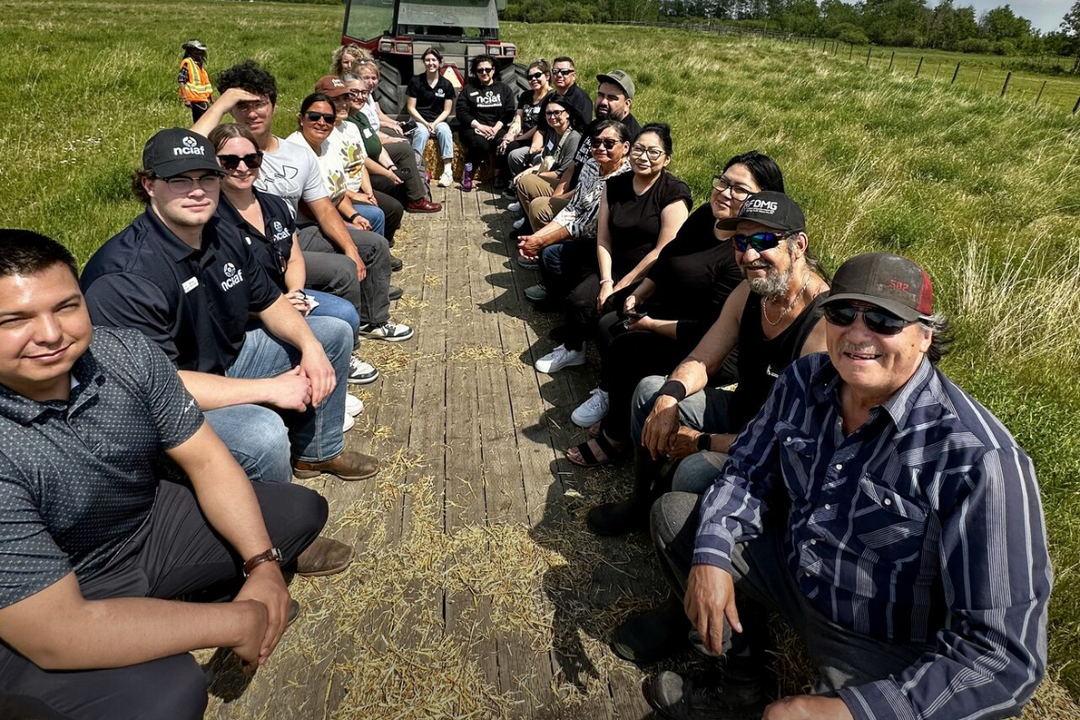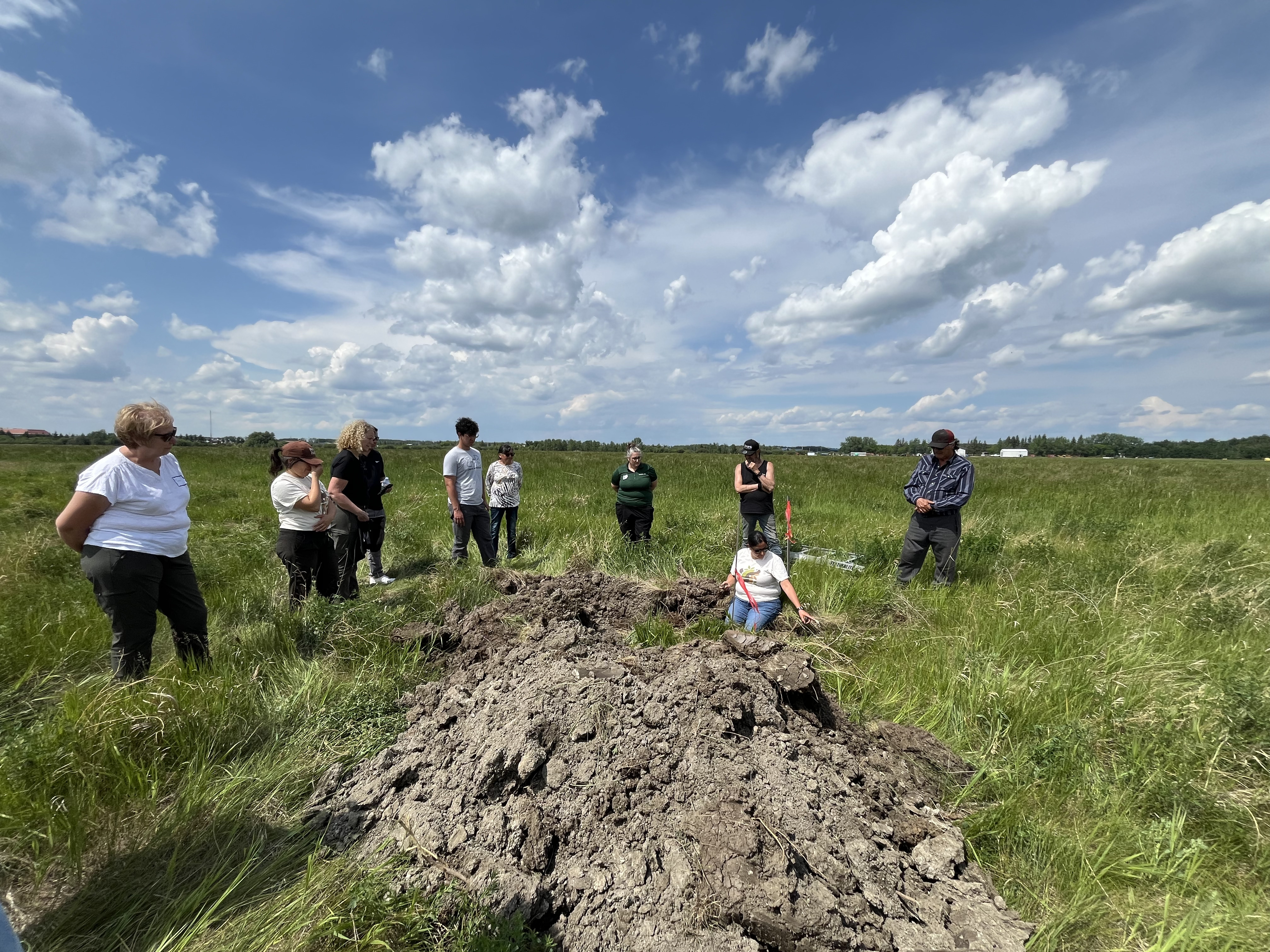Aug 20, 2025 At our 2nd Annual Indigenous Field Day, we were honored to participate in a soil workshop at the Flying Dust Market Garden. The NCIAF had the pleasure of collaborating with Dr. Melissa Arcand and Teresa Porter from the ē kanātahk askiy Soil and Agroecosystem (SAGE) Project, based at the Department of Soil Science at the University of Saskatoon. Flying Dust First Nation graciously welcomed our group to their community. Dr. Arcand wears a few different hats at the University of Saskatchewan. There, she is an Associate Professor in the Department of Soil Science. Additionally, she is the Academic Advisor for students in the Kanawayihetaytan Askiy Indigenous land and resource management certificate program. She is also the Academic Lead for the kihci-okâwîmâw askiy Knowledge Centre. For the soil workshop, Dr. Arcand demonstrated how soils change with depth along a profile within a soil pit that the Market Garden’s staff dug in the field. She used the pit to show the varying components of local soil—noting that it was dry, clay-based, and high in calcium carbonate, while simultaneously emphasizing that the darker soil at the surface is a sign of high organic matter content and better soil fertility. Dr. Arcand notably focused on the fact that soil is a living system. It is the home for billions of microbes and fungi, and where plant roots absorb nutrients and water. She also highlighted issues with rented and marginal lands, the importance of long-term stewardship, and the need for accessible soil maps like those supported by the SAGE Project. The SAGE Project is a community-led initiative focused on soil health and sustainable land stewardship, working in close partnership with Indigenous communities across the Canadian Prairies. Its mission is to foster a communicative network that integrates both Indigenous and Western scientific knowledge to support soil and agroecosystem health. Rooted in Indigenous values, traditions, and ways of knowing, SAGE aims to share this collective knowledge with Indigenous Nations and to build agroecosystems that thrive in biodiversity and soil vitality, while growing stronger and more resilient in the face of climate change. At the heart of SAGE’s efforts is its commitment to empowering Indigenous communities through culturally guided, sustainable agricultural practices. These include regenerative agriculture and other land-based methods informed by traditional Indigenous knowledge. With leadership from Indigenous voices, SAGE provides hands-on training, workshops, and knowledge-sharing opportunities designed to improve soil health and foster long-term ecological balance. From September 23–25, 2025, SAGE and Bridge to Land Water Sky will host its 2nd Annual Indigenous Farm & Food Festival at Dumont Lodge in Batoche and Muskeg Lake Cree Nation, Saskatchewan. This free, three-day interactive event welcomes Indigenous participants and those who work with or support Indigenous communities. The festival offers a space to connect, celebrate, and deepen understanding of Indigenous food systems and regenerative agriculture through storytelling, workshops, and shared learning experiences. Participants will enjoy hands-on activities, discovery sessions, and self-guided visits—including a shared farm tour—focused on soil health, buffalo caretaking, and food sovereignty. Meals will be provided by renowned Métis Chef Jenni Lessard. The event is designed to spark inspiration, encourage collaboration, and leave attendees with lasting relationships, new knowledge, and fresh ideas to bring back to their communities. For more information visit Events - ē kanātahk askiy SAGE Project | University of Saskatchewan and RSVP Here.
Indigenous Knowledge Meets Soil Science: Learn About the SAGE Project

You’re Invited: Indigenous Farm and Food Festival

